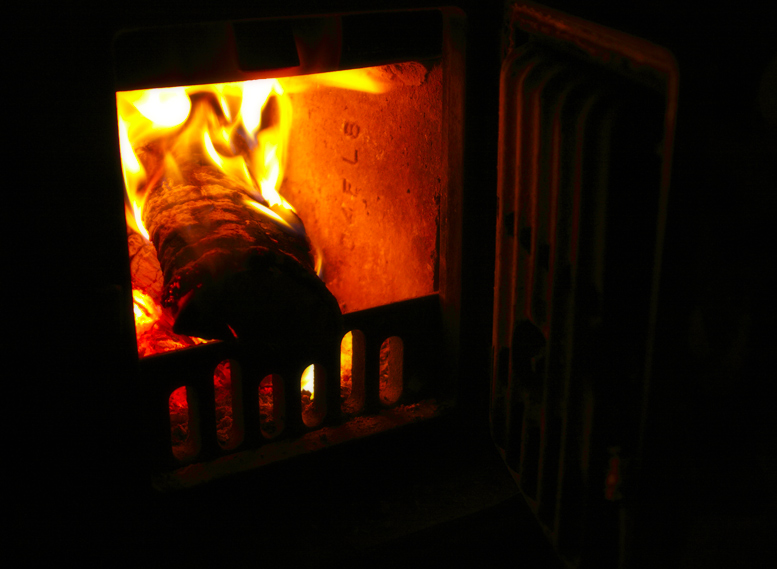In the Heat of the Night
Posted on February 11, 2022

Of all the daily chores my father performed on the southern Illinois dairy farm of my youth, the most vital to me each winter morning was his rekindling of the banked fire in the tall, round wood stove that dominated my mother’s kitchen 60 years ago.
The stove was, no kidding, a Warm Morning model. It was as tall as me then and more round than my great Uncle Honey. Somehow Dad, despite his city upbringing, knew how to manage this iron maiden for maximum effect in minimum time. In fact, the stove usually radiated heat before the water for his first cup of morning coffee boiled.
But rekindling the fire was only the final heat-promising chore in a whole series of high-heat chores that led to it. There was wood sawing, splitting, hauling, stacking, hauling into the house, lighting, and, finally, hauling the ashes, in our case, to the garden.
Dad, and Mom, too, couldn’t wait until the town’s “furnace man” installed a whole house, thermostatically-controlled “furnace” that burned what they called coal oil fed to it by a copper line from a smelly fuel tank in our side yard.
That upgrade brought our farmhouse’s two unheated and, until then, unused upstairs bedrooms into the lives of my three brothers and sister. We four boys were assigned the colder northern room while my sister smiled warmly from the sunnier southern room.
The only problem with the new arrangement was that, despite clear evidence that the new furnace’s ductwork did indeed reach the rooms, there was no evidence whatsoever that any of the furnace’s heat ever did. Winter, for my brothers and me, was the season of flannel sheets and layers and layers of toe-curling woolen quilts.
The farm’s two principal hired men, herdsman Howard and his field hand brother Jackie, had no such problem because they had no such furnace. Their living room stove, our old kitchen stove, glowed invitingly hot in their farm-provided house until they moved to another place in the late 1970s.
Howard was its main attendant and his favorite fuel was southern Illinois coal. Early each winter a local trucker, after delivering a load of cull cattle from our farm to the stockyards, would backhaul five or so tons of coal and dump it near Howard and Jackie’s backdoor. Each winter day, Howard filled a five-gallon bucket with softball-sized chunks to burn in the brick-lined Warm Morning.
Sometimes, the ever-impatient Jackie would top the red-glowing coal with what he called “a chug” of split pecan wood. The wood, almost as dense and BTU-bearing as the bituminous coal, could make the stove glow pink at night.
After my father installed a furnace in the dairy barn in the late 1960s, however, neither brother was in any hurry to return to their piles of split pecan and lumpy coal. All the heat they ever wanted was, literally, at their dial-turning fingertips in the dairy barn.
My siblings and I had a similar revelation when we became aware of electric blankets. Our comfort, nay, our very survival, depended on electricity and our parents, downstairs and warm, had given us coal oil? Oh, the cries that went up!
Soon three electric blankets–one for Richard and David’s bed, one for Perry and my bed, and one for Miss Sunshine Across the Hall’s bed–appeared. From then on, our biggest worry each evening was who among us would brave the arctic upstairs to switch on the three, life-sustaining blankets.
Of no concern at any time, however, was being immolated in a roaring fire started by extension cords plugged into extension cords that ran from our toasty blankets under several rugs to each room’s only electrical outlet in a makeshift closet.
Should we have worried? Of course, but I don’t remember worrying about anything once tucked into our pre-warmed nests of flannel, wool, and innocence.
© 2022 ag comm
Share This